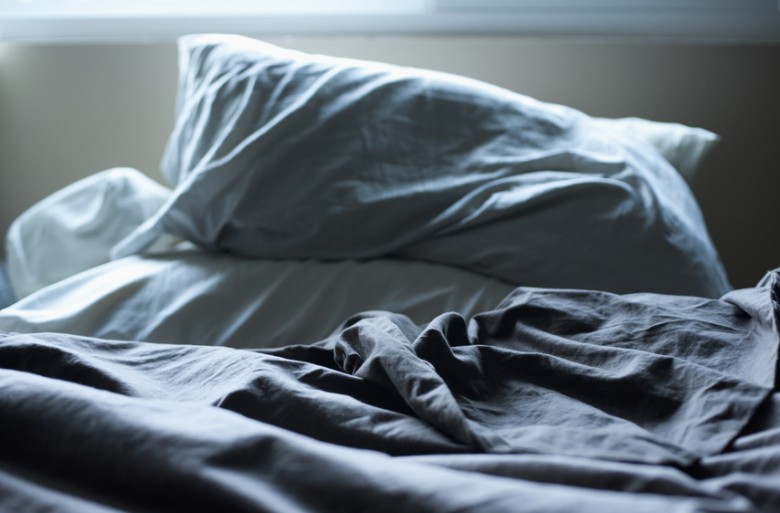How these simple bedroom tips improve your sleep drasticaly
One of the best ways to get a better night’s sleep is to create an environment that is conducive to deep, restful slumber. Your bedroom’s lighting and noise level can both affect how rested you feel each morning. Even the dripping of a leaky faucet or the light of your alarm clock can have an impact on your sleep, so consider adopting a few bedroom tips and making small, simple changes to your sleep environment to feel more rested each morning.
How Light Affects Our Sleep
Light – or a lack of it – is one of the most important ways our body regulates sleep. Bright lights, particularly strong, outdoor lights, help regulate our circadian rhythms. These rhythms operate sort of like a clock, telling us when to sleep and when to wake up. Sunlight and bright indoor lighting tell our brains to wake up, while darkness indicates that it is time for sleep.
Before the invention of the light bulb in the late 19th century, our bodies transitioned between sleeping and waking with cues from natural light and darkness. But now, the brightness from indoor lighting and electronics has disrupted that natural rhythm. Even low lighting from a street lamp or a television set can send our brains the wrong messages and keep us up.
Begin sending the right signals to your brain by powering off electronics and turning down lights in the hour before bedtime. You can also make your bedroom more conducive to sleep by following a few steps to reduce lighting in your sleeping environment. If you are someone who works at night and sleeps during the day, reducing the light in your bedroom is even more essential to restful sleep.
Reducing Light
- Turn off your television, laptop, tablet, or other electronics before falling asleep. Better yet, shut them off an hour before your head hits the pillow.
- Use curtains or blinds to diffuse harsh outdoor lights, such as the light from a street lamp. If light still keeps you up, or if you sleep during the day, invest in blackout curtains, which will block all outside light.
- If you use an alarm clock, choose one that goes dark at night and is only illuminated when you hit the snooze. The glow may not only affect your sleep, but anxiety about the time may also keep you up.
- Even little lights, such as the light from a laptop’s “on” indicator or the glow of a watch, can impact sleep. Cover these with tape and scraps of paper, or move them to another room, to snooze soundly.
- If you can’t control some of the light in your room, use an eye mask to block it out.
- If you frequently get up at night, line the hallway with dim nightlights instead of flipping on overhead lighting. These bright overhead lights can interrupt our brain’s messages and tell us to wake up, making it harder to fall into a deep sleep when we return to bed.
How Noise Affects Our Sleep
For our early ancestors, small noises were often the only indication of an enemy or a predator lurking nearby. Humans adapted to respond to sounds while asleep. This is why, even today, a neighbor’s noisy party shakes us into wakefulness. Even when noises don’t wake us from sleep, they often cause us to transition to a lighter stage sleep, affecting our overall sleep quality and our feelings of restfulness the next day.
But not all noises are bad for our sleep. Some faint sounds, like the low hum of traffic, the sound of crickets, or the ticking of a clock, won’t wake us up if we are acclimated to them. In fact, silence can actually disrupt our sleep. When we are used to complete quiet, even the smallest sounds can startle us awake.
Unfamiliar, inconsistent, or loud noises, however, can wake us up. Outside your house or apartment, you may wake to noises from street construction or arguing neighbors. Inside, you may experience the sounds of a snoring partner or a television set in the next room. Even the dripping of a faucet can keep some people up at night. Improve your sleep by using the following techniques to reduce and control noise in your sleeping environment.
Reducing Noise
- If you have noisy roommates or nocturnal pets, close your bedroom door to block out sounds.
- Some people like to fall asleep to nature sounds or soothing music. This kind of background noise may improve your sleep quality, but if you find it waking you up later at night, set the noise on a timer so it shuts off shortly after you fall asleep.
- If outside noise is invading your sleeping space, invest in heavy or noise-cancelling curtains or line your walls with sound-absorbing panels.
- Some noises within your sleeping environment – for example, a roommate’s snoring – you may not be able to control. In these cases, invest in high-quality earplugs, which will reduce noise and improve sleep quality.
- If, on the other hand, your sleeping space is very quiet, small sounds may wake you from a restful sleep. If this is the case, create some “white noise” in your environment by turning on a quiet fan or investing in a white noise machine or smart phone app.
- If you have a ticking clock in your bedroom, consider packing it on trips so you experience the familiar sound while you’re away.
Making these simple changes to your sleeping area can improve your overall sleep quality. If you continue to suffer from insomnia or other sleep problems, talk to your doctor about medical interventions that may help.
